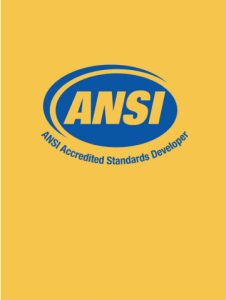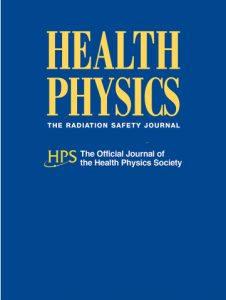Official positions are the positions that the Health Physics Society (HPS) takes on a topic. Positions are concise declarations regarding an issue relevant to radiation safety. Positions are established by a two-thirds vote of the Board members present.
To promote collegial relationships between the Society and other professional organizations, the Scientific and Public Issues Committee will communicate the positions of the Society on radiation safety issues with other organizations and the scientific community.
| Topic | Society Positions |
|---|---|
|
Nuclear Power |
The Health Physics Society (HPS) believes that nuclear power in the United States is a safe, reliable, low-carbon energy source. The exposures to radiation and/or radioactive material associated with nuclear power generation—and indeed the entire nuclear fuel cycle—have been effectively managed to ensure the safety of workers, the public, and the environment. |
|
Health Physics |
Health physics, also referred to as the science of radiation protection, is the profession devoted to protecting people and their environment from potential radiation hazards, while making it possible to enjoy the beneficial uses of radiation. Health physicists normally require a four-year bachelor’s degree and qualifying experience that demonstrates a professional knowledge of the theory and application of radiation protection principles and closely related sciences. |
|
CT Scanning |
The Health Physics Society recommends that computed tomography (CT) screening exams only be performed if prescribed by a qualified healthcare provider. |
|
Mobile Device Use for Radiation Detection |
Mobile applications to measure radiation using smart phones, or external accessories made for such devices, are not substitutes for quality-controlled measurements made by trained and qualified radiation protection professionals using calibrated radiation detection instruments. Measurements made by such devices should not be used as the primary source of information to evaluate the user’s safety or to issue protective actions for the public. |
|
Radiofrequency Transmitters |
The radiofrequency transmitters used in conjunction with smart meters do not present a public health risk. |
|
Radiation Exposure of Public |
No person should be intentionally exposed to ionizing radiation without his or her knowledge. |
|
Patient Release PS027-0 |
The HPS has adopted a position recommending that patients who have been treated with therapeutic quantities of radiopharmaceuticals or who have received permanent implants of sealed radioactive sources for therapeutic purposes may be released from treatment facilities without harm to caregivers and the public if the conditions of release are based on patient-release criteria published by national and international radiation safety consensus organizations and by regulations (10 CFR 35.75) of the US Nuclear Regulatory Commission. |
|
Safety Culture |
Users of radiation and radioactive material should establish a collective commitment by their managers and employees to emphasize safety over competing goals to ensure protection of people and the environment. |
|
Radiological Quantities |
The HPS has adopted a position that the International System of Units (SI) should be used exclusively when expressing radiological quantities. |
|
The HPS endorses the Guiding Principles for Radiation Protection Professionals on Stakeholder Engagement developed by the International Radiation Protection Association. |
|
|
Spent Nuclear Fuel |
1. The HPS believes the management of spent fuel from nuclear reactors should be conducted in a manner that (a) uses only scientifically valid and reasonable assumptions for setting protection standards, (b) adequately protects the public and environment from radiation exposure resulting from natural, accidental, or malevolent release of radioactive materials from the spent fuel, (c) accommodates evolving technologies, and (d) does not permanently dispose of potentially valuable material that is contained in a spent-fuel assembly. |
|
Source Security |
1. The HPS believes that security of vulnerable and orphan sources, both domestic and international, is a radiation safety issue of high priority needing additional state and national attention. |
|
Security Screening |
1. The HPS believes that radiation-emitting devices must be operated in accordance with the appropriate operating standards for the device. |
|
Human Capital Crisis |
The HPS believes that congressional and federal agencies’ support for science, technology, engineering, and mathematics (STEM) education is critical for resolution of the human capital crisis in radiation safety. |
|
Compensation |
1. Based on the extensive knowledge of radiation health effects, the HPS believes that a person’s radiation dose must be considered in determining whether to provide compensation for a disease that could have been caused by radiation. |
|
Occupational Standards
|
1. The HPS believes occupational radiation safety standards and regulations and their implementation have been sound, and protective of radiation workers, since the mid-1950s. |
|
Clearance of Materials |
1. The HPS supports regulations for radiation protection that are based on the National Council on Radiation Protection and Measurements recommendations for dose limits for individual members of the public. |
|
Risk |
1. The HPS has concluded that estimates of health risk should be limited to individuals receiving a dose of 50 mSv in one year or a lifetime dose of 100 mSv above that received from natural sources. |
|
Low-Level Waste |
1. The goal of managing low-level radioactive waste (LLRW) is to ensure the safety of workers and the public and to protect the environment. To achieve this goal, disposal, not long-term storage, is the best and safest long-term approach. |
|
Risk Assessment |
1. The HPS supports risk assessments that are consistent, of high technical quality, unbiased, and based on sound, objective science. |
|
Standards – Public |
The HPS recommends that radiation safety standards for the general public be based on the current scientific consensus provided by International Commission on Radiological Protection and National Council on Radiation Protection and Measurements recommendations. |
|
Standards – Compatibility |
1. The HPS advocates a single, independent US federal agency shall have the responsibility and authority to establish all ionizing radiation safety standards for all controllable sources of occupational and public exposures. |
|
Radon |
The HPS encourages members of the public to minimize exposure to radon and its radioactive decay products to the extent reasonably achievable, taking into account applicable technical, economic, and social factors. |






